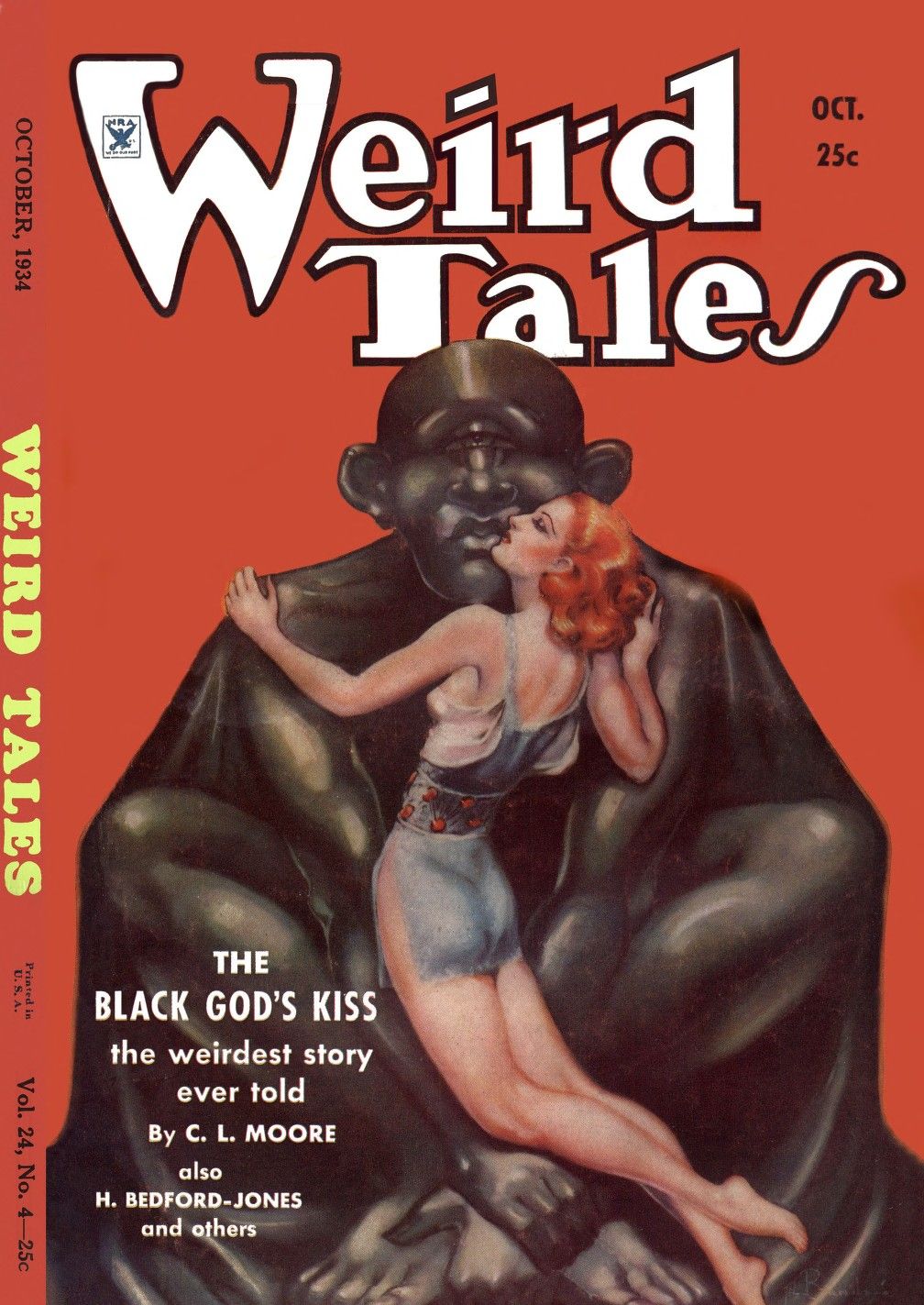The Troubled History of Weird Tales Magazine
/ When the fall arrives, I get into the mood for darker fiction, particularly H.P. Lovecraft. I've written about Lovecraft before, but I didn't quite realize how important the magazine was, despite its general flaws in quality, to the genre. Authors such as C.L. Moore, and quite a few others passed through its pages, and it's clear that it's a publication that's just as important as Astounding or Amazing Stories.
When the fall arrives, I get into the mood for darker fiction, particularly H.P. Lovecraft. I've written about Lovecraft before, but I didn't quite realize how important the magazine was, despite its general flaws in quality, to the genre. Authors such as C.L. Moore, and quite a few others passed through its pages, and it's clear that it's a publication that's just as important as Astounding or Amazing Stories.
Go read The Troubled History of Weird Tales Magazine over on Kirkus Reviews. Sources Used:
The Time Machines: The Story of science-fiction pulp magazines from the beginning to 1950, Mike Ashley: Ashley's fairly comprehensive history touches on Weird Tales, and provided some excellent details on the operations of the magazine, in context with the rest of the pulp magazine market. Lovecraft: A Look Behind the 'Cthulhu Mythos', Lin Carter: Carter's book talks about Lovecraft's interactions with the magazine, which provided some crucial details. The Creation of Tomorrow: Fifty Years of Magazine Science Fiction, Paul A. Carter: This book is another history of speculative fiction magazines, and it provided some good details and context on Weird Tales' place in the market. The Pulps, edited by Tony Goodstone: This is actually a neat anthology of stories from the pulp era, prefaced with a blurb about the magazines. Weird Tales has a whole section, along with stories from Tennessee Williams, Page Cooper, Frank Belknap Long Jr., Mary Elizabeth Counselman, Malcom Jameson, Virgil Finley, Clark Ashton Smith and H.P. Lovecraft. A Dreamer and a Visionary: H.P. Lovecraft in His Time, S. T. Josti: Another book on Lovecraft that shed some interesting details on Lovecraft's interactions with the magazine. The Man from Mars: Ray Palmer's Amazing Pulp Journey, Fred Nadis: This is a recent biography that talked a bit about Fransworth Wright, one of the major editors at the magazine. Conversations with the Weird Tales Circle, John Pelan: This astonishing book is a tome, with an impressive, excited survey of Weird Tales authors and editors (although interestingly, Dorothy McIlwraith is missing.) with a lot of primary source information. This was particularly helpful with Wright, but also with primary source impressions from the authors who wrote for the magazine. The Weird Tales Story, Robert E. Weinberg: This book is an exhuberant, editorialized history of the magazine, which helped put some of the major events into place.
